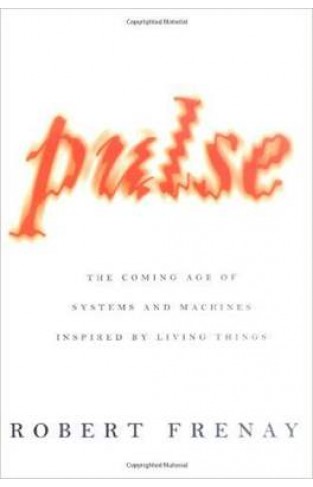Pulse The Coming Age of Systems and Machines Inspired by Living Things -
Pulse The Coming Age of Systems and Machines Inspired by Living Things -
By:
-
Rs 680.00
- Rs 800.00
- Ex Tax :Rs 680.00
- Price in loyalty points :598
You saved Rs 120.00.
Due to constant currency fluctuation, prices are subject to change with or without notice.
Bridges made with spider silk; ships that
swim like fish; rubber as supple as a dragonfly's wing ... innovations
like these are at the forefront of the concept of 'the new biology'. A
way of using nature as a model for human designs, the new biology is a
growing force in many different fields, and will have enormous impact on
the development of the twenty-first century. Companies like IBM, Volvo
and AT&T are already exploring how we can learn from and use
properties that exist in nature, and how to improve cost-efficiency by
using concepts like 'design for disassembly', whereby each component of a
product can be recycled at the end of the product's natural life. Waste
products, too, are increasingly being used as raw materials, so one
industry's rubbish is norther's power. Creating 'industrial ecologies'
like these lies at the heart of the new biology: a new way of thinking
for a new millennium.
The essential introduction to this idea, PULSE is a fascinating look at how we might be living in the twenty-first century.
Bridges made with spider silk; ships that swim like fish; rubber as supple as a dragonfly's wing ... innovations like these are at the forefront of the concept of 'the new biology'. A way of using nature as a model for human designs, the new biology is a growing force in many different fields, and will have enormous impact on the development of the twenty-first century. Companies like IBM, Volvo and AT&T are already exploring how we can learn from and use properties that exist in nature, and how to improve cost-efficiency by using concepts like 'design for disassembly', whereby each component of a product can be recycled at the end of the product's natural life. Waste products, too, are increasingly being used as raw materials, so one industry's rubbish is norther's power. Creating 'industrial ecologies' like these lies at the heart of the new biology: a new way of thinking for a new millennium.
The essential introduction to this idea, PULSE is a fascinating look at how we might be living in the twenty-first century.












